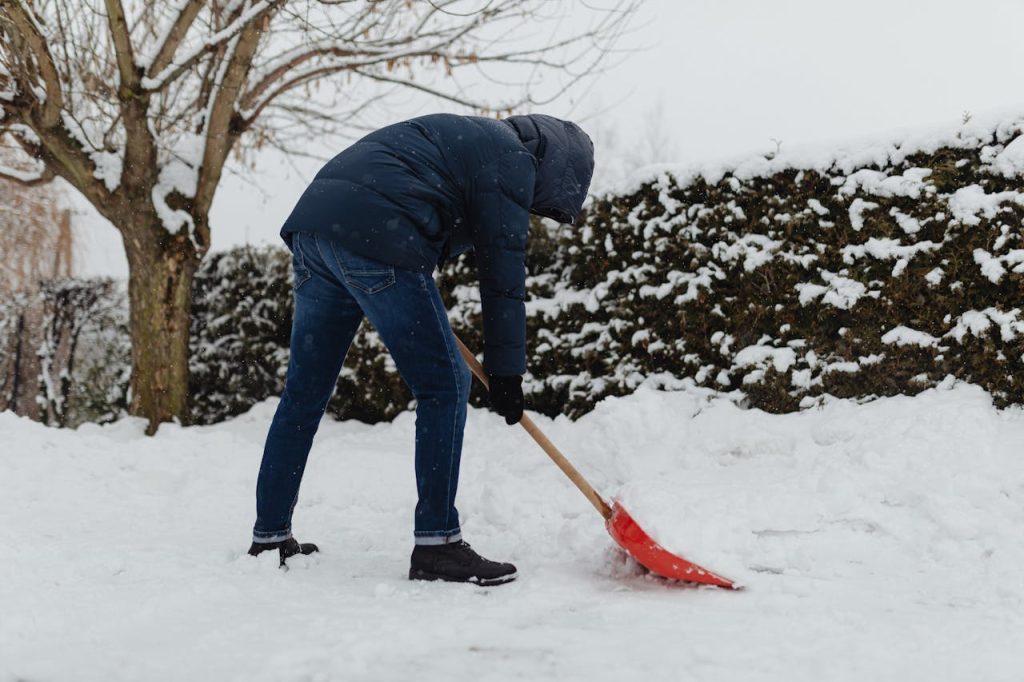
Keeping sidewalks clear in winter isn’t just about being a good neighbor. In many places, it’s the law. But are fines for not shoveling your sidewalk still a thing? Or have cities relaxed these rules? This question matters if you own a home, rent, or just want to avoid a surprise ticket. Sidewalk safety affects everyone, from kids walking to school to delivery drivers. If you’re wondering whether you can really be fined for not shoveling your sidewalk anymore, here’s what you need to know.
1. Fines for Not Shoveling Your Sidewalk Still Exist
Yes, you can still be fined for not shoveling your sidewalk in many cities. Local governments set these rules to keep sidewalks safe for everyone. If you ignore them, you might get a warning first. But if you keep skipping the shovel, a fine can show up in your mailbox. Some cities charge as little as $25, while others can hit you with $100 or more for each day your sidewalk stays icy or blocked. The main reason for these fines is public safety. Slippery sidewalks can cause falls and injuries, especially for older adults and people with disabilities. If you want to check your city’s rules, look up your local code or visit your city’s website.
2. Not Every City Enforces the Rules the Same Way
Enforcement varies a lot. Some cities send out inspectors after every snowstorm. Others only respond if someone complains. In smaller towns, you might never see a ticket, but in bigger cities, enforcement can be strict. Some places even have apps or hotlines where neighbors can report unshoveled sidewalks. If you live in a city with a lot of foot traffic, expect more attention to sidewalk rules. But if you’re in a rural area, the rules might be on the books but rarely enforced. It’s smart to know how your city handles this. Ask neighbors or check your city’s website for details.
3. Who Is Responsible for Shoveling?
Responsibility usually falls on the property owner. If you own your home, it’s your job. If you rent, your lease might say you have to shovel, or it might be the landlord’s job. Some cities make it clear in their codes, but others leave it up to the lease agreement. If you’re not sure, check your lease or ask your landlord. For businesses, the owner or manager is usually responsible for keeping sidewalks clear. If you’re in a condo or HOA, the association might handle it, but don’t assume—ask first. Not knowing who’s responsible can lead to confusion and, sometimes, a fine.
4. How Much Time Do You Have to Shovel?
Most cities give you a set amount of time after the snow stops falling. This can be as short as four hours or as long as 24 hours. For example, in Denver, you have 24 hours after the snow ends to clear your sidewalk. In New York City, it’s just four hours during the day. If you’re at work or out of town, this can be tough. Some people hire a service or ask a neighbor for help. If you can’t shovel because of age or disability, some cities offer assistance programs. Check your city’s website for the exact rules and any help that’s available.
5. What Happens If You Don’t Shovel?
If you don’t shovel, you might get a warning first. Some cities send a notice or leave a tag on your door. If you still don’t clear the sidewalk, the city might send a crew to do it and bill you for the work. On top of that, you could get a fine. In some places, the fine increases each day the sidewalk isn’t cleared. And if someone slips and gets hurt, you could be liable for their injuries. That means you might have to pay medical bills or even face a lawsuit. Keeping your sidewalk clear isn’t just about avoiding a fine—it’s about protecting yourself and others.
6. Are There Any Exceptions to the Rules?
Some cities make exceptions for people who can’t physically shovel. If you’re elderly or have a disability, you might be able to apply for a waiver or get help from a city program. But you usually have to sign up in advance. Bad weather isn’t always an excuse. If the snow keeps falling, you might have to shovel more than once. And if you’re out of town, you’re still responsible. Some people ask a neighbor or hire a service to cover them when they’re away. Don’t assume you’re off the hook—check your city’s rules and plan ahead.
7. How to Avoid Fines and Stay Safe
The best way to avoid fines is to shovel early and often. Use a sturdy shovel and clear the full width of the sidewalk. Don’t just make a narrow path. Spread salt or sand to prevent ice from forming. If you have trouble shoveling, ask for help or hire someone. Some cities offer free salt or sand to residents. If you see a neighbor struggling, offer to help. Keeping sidewalks clear helps everyone get around safely.
Why Sidewalk Shoveling Rules Still Matter
Sidewalk shoveling rules aren’t just about avoiding a fine. They keep neighborhoods safe and walkable. Even if enforcement isn’t strict where you live, clearing your sidewalk helps everyone. It’s a small effort that makes a big difference, especially for people who rely on walking to get around. So, can you really be fined for not shoveling your sidewalk anymore? In most places, yes. But more importantly, it’s about being a good neighbor and keeping your community safe.
Have you ever been fined for not shoveling your sidewalk, or do you know someone who has? Share your story in the comments.
Read More
Property Manager or DIY: When to Pay for Rental Issues
Several Car Brands Are Quietly Cutting Safety Features for 2025 Models
The post Can You Really Be Fined for Not Shoveling Your Sidewalk Anymore? appeared first on The Free Financial Advisor.







